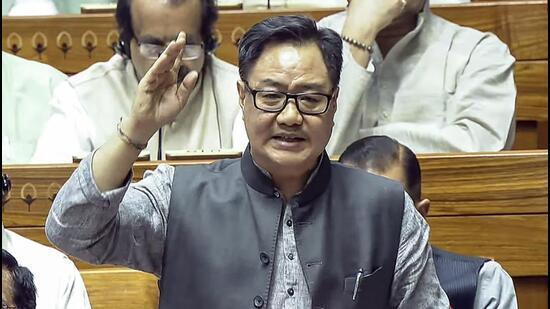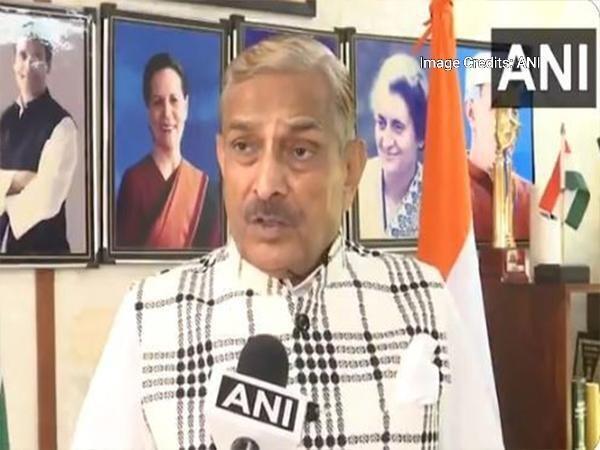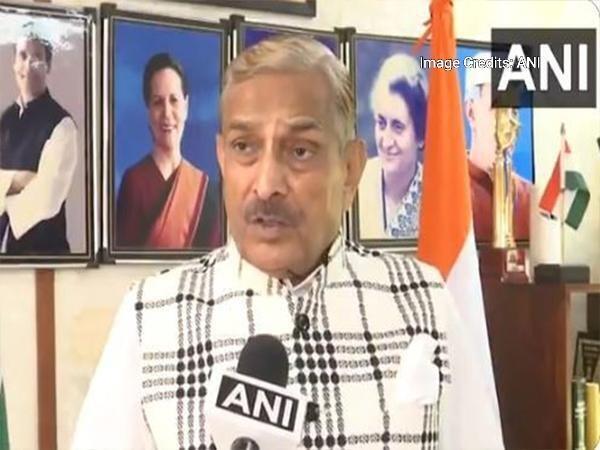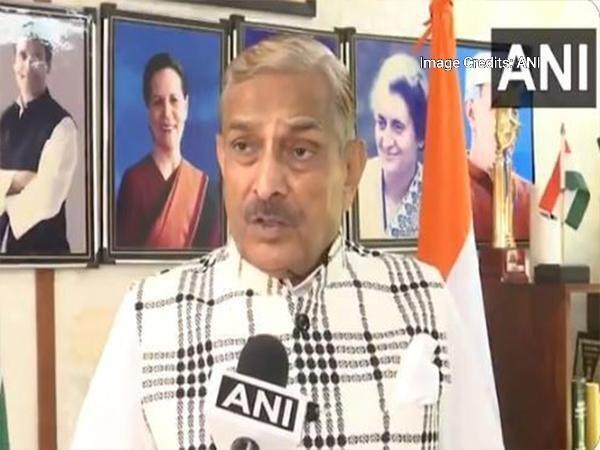
Opposition Creates Confusion & Leaves House: Rijiju in Rajya Sabha
The ongoing parliamentary session has seen its fair share of heated debates and disagreements between the government and the opposition parties. The latest instance of this was witnessed during the discussion on the Waqf (Amendment) Bill in the Rajya Sabha, where Union Minister Kiren Rijiju criticized senior members of the opposition for creating confusion and not staying back to listen to the government’s replies.
Rijiju, who was participating in the discussion, targeted senior Rajya Sabha member Kapil Sibal for making misleading comparisons between the properties of Waqf bodies and those of other religious bodies. Sibal had claimed that the amendment bill aimed to give a free hand to the central government to take over the properties of Waqf bodies, which was vehemently denied by Rijiju.
The Union Minister accused Sibal of creating confusion by making such comparisons, which were not only baseless but also misleading. Rijiju emphasized that the Waqf (Amendment) Bill was aimed at ensuring the transparency and accountability of Waqf properties, and not to take over their management.
“It’s unfortunate that some members of the opposition create confusion by making misleading statements and then leave the House without staying back to listen to the replies,” Rijiju said. “This is not the way to carry out constructive debate. We want to have a meaningful discussion and clear the doubts, but some members are not willing to do so.”
Rijiju’s remarks came as a response to Sibal’s criticism of the bill, which the senior Congress leader said would lead to the takeover of Waqf properties by the central government. Sibal had also claimed that the bill was aimed at undermining the autonomy of Waqf bodies and restricting their ability to manage their properties.
However, Rijiju rejected Sibal’s claims, saying that the bill was aimed at ensuring the transparency and accountability of Waqf properties. He emphasized that the bill would help to prevent the mismanagement of Waqf properties and ensure that the benefits of these properties reached the intended beneficiaries.
The Waqf (Amendment) Bill is aimed at amending the Waqf Act, 1995, which regulates the management of Waqf properties across the country. The bill proposes to empower the central government to take over the management of Waqf properties in cases where they are not being managed properly.
The opposition parties have been criticizing the bill, saying that it would lead to the takeover of Waqf properties by the central government and undermine the autonomy of Waqf bodies. However, the government has denied these claims, saying that the bill is aimed at ensuring the transparency and accountability of Waqf properties.
The debate on the Waqf (Amendment) Bill highlights the ongoing tensions between the government and the opposition parties in the Rajya Sabha. The opposition parties have been criticizing the government for its handling of various issues, including the economy, unemployment, and corruption.
In recent times, the Rajya Sabha has seen several heated debates and disagreements between the government and the opposition parties. The opposition parties have been using various tactics, including raising irrelevant issues and making misleading statements, to discredit the government and derail its legislative agenda.
However, the government has been refusing to engage with the opposition parties and has been pushing ahead with its legislative agenda. The government has been relying on its majority in the Lok Sabha to pass its bills, despite opposition from the Rajya Sabha.
In conclusion, the debate on the Waqf (Amendment) Bill highlights the ongoing tensions between the government and the opposition parties in the Rajya Sabha. The opposition parties have been criticizing the government for its handling of various issues, including the economy, unemployment, and corruption. The government has been refusing to engage with the opposition parties and has been pushing ahead with its legislative agenda.
The Waqf (Amendment) Bill is a significant piece of legislation that aims to ensure the transparency and accountability of Waqf properties. The bill proposes to empower the central government to take over the management of Waqf properties in cases where they are not being managed properly.
The opposition parties have been criticizing the bill, saying that it would lead to the takeover of Waqf properties by the central government and undermine the autonomy of Waqf bodies. However, the government has denied these claims, saying that the bill is aimed at ensuring the transparency and accountability of Waqf properties.
The debate on the Waqf (Amendment) Bill is a reflection of the ongoing tensions between the government and the opposition parties in the Rajya Sabha. The opposition parties have been using various tactics, including raising irrelevant issues and making misleading statements, to discredit the government and derail its legislative agenda.
In the end, the Waqf (Amendment) Bill is a significant piece of legislation that aims to ensure the transparency and accountability of Waqf properties. The bill proposes to empower the central government to take over the management of Waqf properties in cases where they are not being managed properly.
The opposition parties have been criticizing the bill, saying that it would lead to the takeover of Waqf properties by the central government and undermine the autonomy of Waqf bodies. However, the government has denied these claims, saying that the bill is aimed at ensuring the transparency and accountability of Waqf properties.
The debate on the Waqf (Amendment) Bill highlights the ongoing tensions between the government and the opposition parties in the Rajya Sabha. The opposition parties have been using various tactics, including raising irrelevant issues and making misleading statements, to discredit the government and derail its legislative agenda.
In the final analysis, the Waqf (Amendment) Bill is a significant piece of legislation that aims to ensure the transparency and accountability of Waqf properties. The bill proposes to empower the central government to take over the management of Waqf properties in cases where they are not being managed properly.
The opposition parties have been criticizing the bill, saying that it would lead to the takeover of Waqf properties by the central government and undermine the autonomy of Waqf bodies. However, the government has denied these claims, saying that the bill is aimed at ensuring the transparency and accountability of Waqf properties.
The debate on the Waqf (Amendment) Bill is a reflection of the ongoing tensions between the government and the opposition parties in the Rajya Sabha. The opposition parties have been using various tactics, including raising irrelevant issues and making misleading statements, to discredit the government and derail its legislative agenda.






